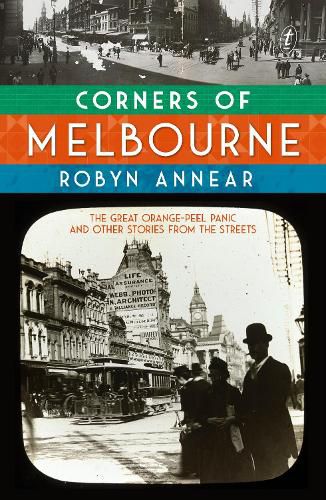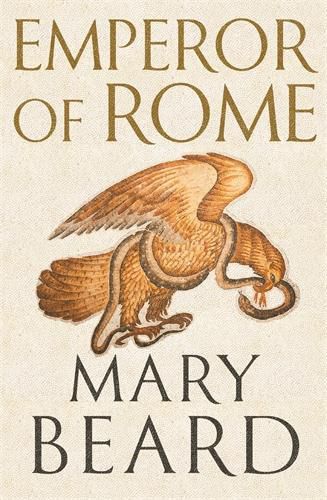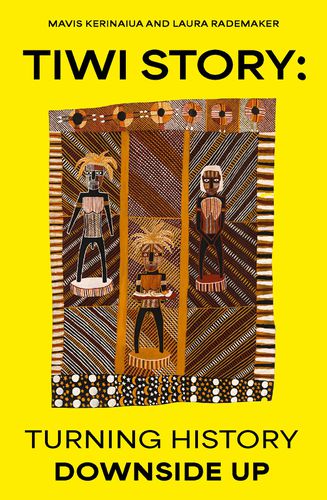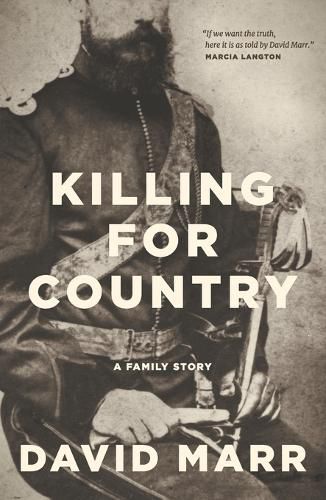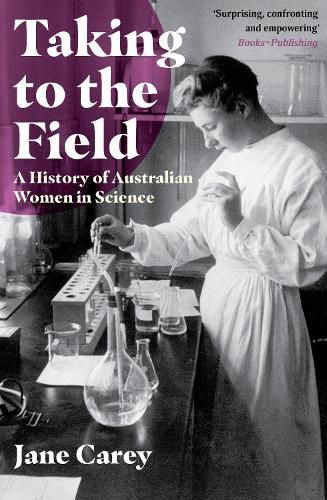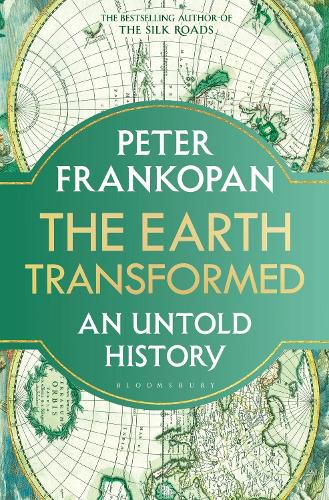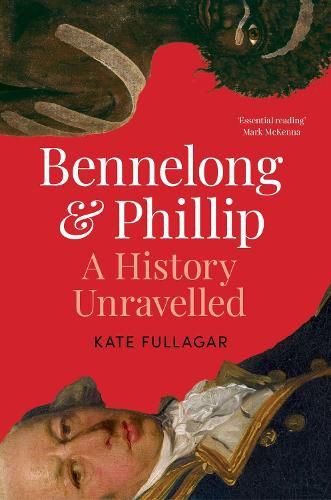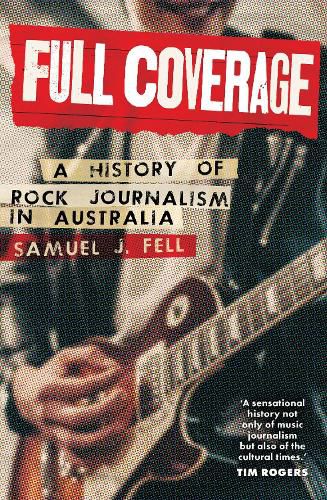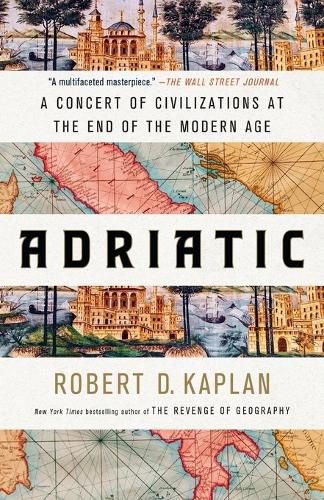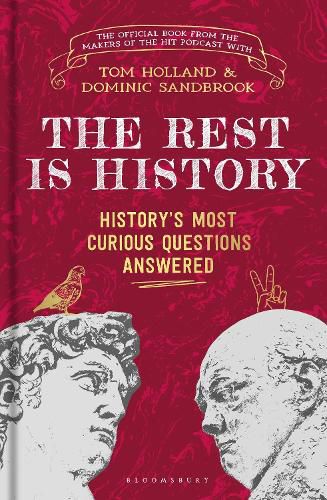From Roman to modern times, Alexandria to Melbourne, unruly monarchs and women in science there is something to please most history enthusiasts in our recommendations for 2023.
Corners of Melbourne by Robyn Annear
What better defines a city than its street corners? A corner gives you a starting point, a destination and a place to turn. It's furnished with pillar boxes, newsstands and tram stops, and lamp-posts for light and lounging. Where would you be likeliest to find a pub? At the corner, of course.
And who better than Robyn Annear to usher you around the corners of Melbourne, and reveal their bizarre, baroque and mostly forgotten stories?
Emperor of Rome by Mary Beard
Cruel control freaks, diligent workaholics or extravagant teenagers? What were the emperors of Rome really like?
In Emperor of Rome Mary Beard goes directly to the heart of Roman (and our own) fantasies about what it was to be Roman, offering an account of Roman history as it has never been presented before. She shines her spotlight on the emperors who ruled the Roman empire, from Julius Caesar (assassinated 44 BCE) to Alexander Severus (assassinated 235 CE). Not your usual chronological account of Roman rulers, one after another: the mad Caligula, the monster Nero, the philosopher Marcus Aurelius, Beard asks bigger questions: What power did emperors actually have? Was the Roman palace really so bloodstained?
Alexandria: The City That Changed the World by Islam Issa
Inspired by the tales of Homer and his own ambitions of empire, Alexander the Great sketched the idea of a city onto the sparsely populated Egyptian coastline. He did not live to see Alexandria built, but his vision of a sparkling metropolis that celebrated learning and diversity was swiftly realised and still stands today.
Situated on the cusp of Africa, Europe and Asia, great civilisations met in Alexandria. Together, Greeks and Egyptians, Romans and Jews created a global knowledge capital of enormous influence: the inventive collaboration of its citizens shaped modern philosophy, science, religion and more. In pitched battles, later empires, from the Arabs and Ottomans to the French and British, laid claim to the city but its independent spirit endures.
Tiwi Story: Turning History Downside Up by Mavis Kerinaiual & Laura Rademaker
Tiwi people have plenty to be proud of. This little tropical island community has more than its fair share of surprising stories that turn ideas of Australian history upside down.
The Tiwi claim the honour of having defeated a global superpower. When the world’s most powerful navy attempted to settle and invade the Tiwi Islands in 1824, Tiwi guerrilla warriors fought the British and won. Then there are stories of the Tiwi people's ‘number one religion’: Aussie Rules Football; the eldest living Tiwi woman, Calista Kantilla, remembers her time growing up in the mission dormitory; and Tiwi Traditional Owner Teddy Portaminni explains the importance of Tiwi history and culture, as something precious, owned by Tiwi and the source of Tiwi strength. Tiwi Story showcases stories of resilience, creativity and survival, as told by the Tiwi people.
Unruly: The History of England's Kings and Queens by David Mitchell
A seriously funny, seriously clever history of England's early kings and queens by one of its favourite comedians and cultural commentators. This will be the most refreshing, entertaining history of England you'll have ever read.
Because David Mitchell will explain how it is not all names, dates or ungraspable historical headwinds, but instead show how it's really just a bunch of random stuff that happened with a few lucky bastards ending up on top. Some of these bastards were quite strange, but they were in charge, so we quite literally lived, and often still live, by their rules.
Killing for Country: A Family Story by David Marr
David Marr was shocked to discover his forebears served with the Native Police, the most brutal force in Australian history and Killing for Country is the result – a personal history of the Frontier Wars. Marr brings his experience as an investigative journalist, an award-winning biographer and political analyst to the story of a colonial family that seized hundreds of thousands of acres of land and led Aboriginal troopers into bloody massacres in the most violent years of the Native Police.
Killing for Country is a unique history of the making of Australia – a richly detailed and gripping family saga of fortunes made and lost, of politics and power in the colonial world, and the violence let loose by squatters and their London bankers as they began their long war for the possession of this country – a contest still unresolved in today's Australia.
The Dictionary People by Sarah Ogilvie
What do three murderers, Karl Marx's daughter and a vegetarian vicar have in common? They all helped create the Oxford English Dictionary. Lexicographer Sarah Ogilvie dives deep into previously untapped archives to tell a people's history of the OED.
The Oxford English Dictionary has long been associated with elite institutions and Victorian men; its longest-serving editor, James Murray, devoted 36 years to the project, as far as the letter T. But the Dictionary didn't just belong to the experts; it relied on contributions from members of the public. By the time it was finished in 1928 its 414,825 entries had been crowdsourced from a surprising and diverse group of people, from archaeologists and astronomers to murderers, naturists, novelists, pornographers, queer couples, suffragists, vicars and vegetarians.
Taking to the Field: A History of Australian Women in Science by Jane Carey
Histories of Australian science largely overlook women. Their absence gives the impression that, until recently, there were no Australian women scientists. But this is far from true: women formed a much larger proportion of the scientific community from the 1900s to the 1940s in Australia than in Britain or the United States, and numbers have only grown since. Why don’t women scientists make it into history books? Because women’s work is less cited than men’s and more likely to be forgotten.
Taking to the Field is the first comprehensive history of Australian women in science from the colonial period to contemporary times. This untold story shows that women have played a greater role than is commonly recognised.
The Earth Transformed: An Untold History by Peter Frankopan
A changing climate has dramatically shaped the development – and demise – of civilisations across time. When we think about history, we rarely pay much attention to the most destructive floods, the worst winters, the most devastating droughts or the ways that ecosystems have changed over time.
Peter Frankopan, one of the world's leading historians, shows that the natural environment is a crucial, if not the defining, factor in global history – and not just of humankind. Volcanic eruptions, solar activities, atmospheric, oceanic and other shifts, as well as anthropogenic behaviour, are fundamental parts of the past and the present. This groundbreaking book takes us from the Big Bang to the present day and beyond and forces us to reckon with humankind's continuing efforts to make sense of the natural world.
Bennelong and Phillip: A History Unravelled by Kate Fullagar
Bennelong and Phillip were leaders of their two sides in the first encounters between Britain and Indigenous Australians, Phillip the colony's first governor, and Bennelong the Eora leader. The pair have come to represent the conflict that flared and has never settled.
Fullargar's account is also the first full biography of Bennelong of any kind and it challenges many misconceptions, among them that he became alienated from his people and that Phillip was a paragon of Enlightenment benevolence. It tells the story of the men's marriages, including Bennelong's best-known wife, Barangaroo, and Phillip's unusual domestic arrangements, and places the period in the context of the Aboriginal world and the demands of empire.
Full Coverage by Samuel J. Fell
For over fifty years, Australia has maintained its own rock press – a vibrant, passionate, sometimes volatile industry of dozens of papers and magazines committed to the coverage of the country's robust music scene. These publications were the medium that brought Australian music culture to international attention and launched the careers of countless musicians, as well as writers, editors and photographers. Go-Set started it all; Rolling Stone Australia, RAM and Juke defined their eras; music newspapers like Beat and Inpress brought indie music to the streets; and sites like Mess+Noise, Tone Deaf and Junkee harnessed the digital age.
Drawing on comprehensive research and dozens of interviews with key figures journalist Samuel J. Fell captures the vibrancy of music journalism in Australia with colourful anecdotes and surprising stories.
Pax: War and Peace in Rome's Golden Age by Tom Holland
The Pax Romana has long been revered as a golden age. At its peak, the Roman Empire stretched from Scotland to Arabia, and contained perhaps a quarter of humanity. It was the wealthiest and most formidable state the world had yet seen.
Beginning in 69AD, a year that saw four Caesars in succession rule the empire, and ending some seven decades later with the death of Hadrian, Pax presents a dazzling history of Rome at the height of its power. From the gilded capital to realms beyond the frontier, historian Tom Holland portrays the Roman Empire in all its predatory glory. Vivid scene follows vivid scene: the destruction of Jerusalem and Pompeii, the building of the Colosseum and Hadrian's Wall, the conquests of Trajan. Vividly sketching the lives of Romans both ordinary and spectacular, from slaves to emperors, Holland demonstrates how Roman peace was the fruit of unprecedented military violence.
Flinders by Grantlee Kieza
Fearless, sharp-eyed and handsome, Matthew Flinders was one of the greatest of all maritime adventurers and undertook one of the most important voyages of discovery – to circumnavigate and map the famed Great Southern Land. Together with his Aboriginal interpreter and guide, Kuringgai man Bungaree, and his beloved rescue cat Trim, Flinders explored the furthest reaches of Australia and meticulously recorded its rugged coastlines on maps so accurate they are still used today.
He also gave our vast island continent its name, turning the centuries-old title 'Terra Australis' into 'Australia' and making the name widely popular through his writing. From the bestselling, critically acclaimed author Grantlee Kieza Flinders is a rollicking adventure tale of a man who loved the sea, and adored his family – and pushed himself to the limits of human endeavour to show it.
Pirate Enlightenment, or the Real Libertalia by David Graeber
The Enlightenment did not begin in Europe. Its true origins lie thousands of miles away on the island of Madagascar, in the late seventeenth century, when it was home to several thousand pirates. This was the Golden Age of Piracy, a period of violent buccaneering and rollicking legends – but it was also a brief window of radical democracy, as the pirate settlers attempted to apply the egalitarian principles of their ships to a new society on land.
For Graeber, Madagascar's lost pirate utopia represents some of the first stirrings of Enlightenment political thought. In this book, he offers a way to 'decolonize the Enlightenment', demonstrating how this mixed community experimented with an alternative vision of human freedom. Its actors were Malagasy women, merchants and traders, philosopher kings and escaped slaves, exploring ideas that were ultimately to be put into practice by Western revolutionary regimes a century later.
Russia's War Against Ukraine by Mark Edele
In February 2022 Russia launched a full-scale invasion of Ukraine, a fellow East Slav state with much shared history. Mark Edele explains why and how this conflict came about and considers competing historical claims and arguments with authority and lucidity. Since the implosion of the Soviet Union in 1991, Ukraine has developed a vibrant, if often troubled, democracy. For an increasingly dictatorial Russian political elite, including but not limited to Vladimir Putin, Ukraine has appeared more and more threatening.
Humiliated by the degradation of Russia's international standing, feeling betrayed by an expanding NATO and anxious about democratic revolutions in the former Soviet space, Putin and his allies have increasingly retreated into a resentful ultra-nationalism.
Adriatic by Robert D. Kaplan
Robert D. Kaplan, geopolitical expert and bestselling author, turns his perceptive eye to a region that for centuries has been a meeting point of cultures, trade, and ideas. He undertakes a journey around the Adriatic Sea, through Italy, Slovenia, Croatia, Montenegro, Albania, and Greece, to reveal that far more is happening in the region than most news stories let on.
Often overlooked, the Adriatic is in fact at the centre of the most significant challenges of our time, including the rise of populist politics, the refugee crisis, and battles over the control of energy resources. And it is once again becoming a global trading hub that will determine Europe's relationship with the rest of the world as China and Russia compete for dominance in its ports. With a cross-pollination of history, literature, art, architecture, and current events Kaplan demonstrates that this unique region holds revelatory truths for the future of global affairs.
The Rest is History by Goalhanger Podcasts, Tom Holland & Dominic Sandbrook
From the chart-topping podcast The Rest is History, a whistle-stop tour through the past – from Alexander the Great to Tolkien, the Wars of the Roses to Watergate. The nation's favourite historians Tom Holland and Dominic Sandbrook take on the most curious moments in history, answering the questions we didn't even think to ask.
Whether it is sending historical figures to Casa Amor in a series of Love Island, ranking history's most famous eunuchs and pigeons (including Winkie, the unsung hero of the Second World War), or debating the meaning of greatness, there is nothing too big or too small for Tom and Dominic to unpick.


